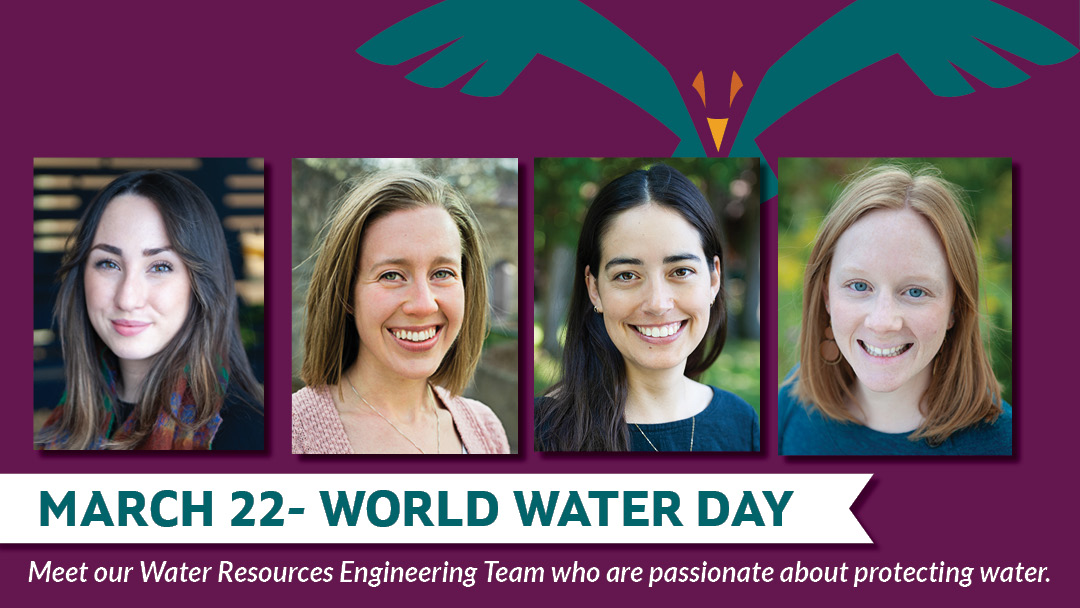
“It’s a deeply sacred space and an honor to be working with Nations around their water.
It’s not purely technical.” Robin Heavens, SVS Water Resources Engineer
SVS has been growing our team of professionals who work with water – engineers, environmental chemists, and water resource scientists. Organically and gradually over time, our team of water specialists has formed into a powerhouse of technical expertise that is deeply grounded in Indigenous ways of knowing. We’re thrilled to announce that the all-female team is also led by Indigenous women. Read on to get to know the team and their unique approach with Nations across Turtle Island.
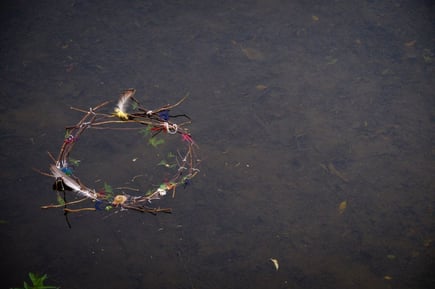
Connection to Water
The connection between women and water is central to the team’s approach. “It’s a deeply sacred space and an honor to be working with Nations around water,” says Robin Heavens, a water resources engineer on the team whose family roots extend to Fisher River Cree Nation in Manitoba. “It's never purely technical. And it's really inspiring to see our clients’ connection with waters and how they have the purest of intentions towards protection and conservation. Water has a real spirituality to it and anytime you're around water, there's a feeling that comes with that.”
Alison Gamble leads the wider environmental science team at SVS, as well as being a core member of the water team. A passionate champion of community-led project design and the two-eyed seeing approach, Alison embodies the confluence of world views. “I like thinking about the water chemistry, and how amazing the interactions are at a molecular level within the water,” Alison says. “In addition to working for our clients, there’s also an opportunity to advance and learn within my own cultural journey as a Métis woman, and to connect in a different way — to have that space to learn from elders and sit with information in a different way.”
A Fundamentally Different Client Experience
The team takes pride in offering a unique experience for clients that is rooted in respect and reverence for water. “When we work directly with a Nation, there is a deep understanding and respect of treating water like it is alive and it has a spirit”, Robin observes. The water team upholds the SVS values of strong relationships, innovative excellence, prioritizing healthy lands and waters, and freedom for all Indigenous Nations to choose their self-determined path. We want to work closely with our clients, to better understand their unique circumstances and move forward together.
Hannah May, the team’s water resources scientist agrees. “Water really grounds me, and it is that connection not just to the land, but also to the people that matters.” The interconnectedness of water, people and Spirit permeates the context of all of the team’s work. The team prioritizes being on the land and co-creating projects with our clients.
Tamarra Lewis, a water resources engineer on the team, is passionate about her learning journey and sees client relationships as reciprocal. “I’m continuously learning from our clients, they’ve taught me to appreciate the water, land, and people as one entity. If you're working with the protection of water, it means you are protecting the people as well - they’re one and the same.”
.jpg?width=496&height=331&name=DSC_9973%20(4).jpg)
What Services Does the Team Offer?
The team believes in a collaborative, Two-Eyed Seeing approach for all of our projects. The services we offer:
- Flood Mapping and Modelling
- Source Water Protection Plans
- Technical Reviews
- Surface and Groundwater Quality and Quantity Monitoring
- Climate Change Adaptation Planning
- Capacity Building and Mentorship
Check out our services page and download our brochure here.
How Did They Get Here? The Winding Career Paths of Women in STEM
All four women chose their career paths because of their resonance with the water and the natural world as a whole — even if that choice was not initially obvious.
Alison’s Journey:
After Alison graduated with a chemistry degree, she knew she didn’t want to spend the rest of her career inside a lab but was uncertain of her next steps, so she went home to Dryden, Ontario to reevaluate her career options.
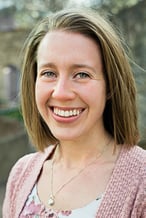 “I took some time back with my family doing the things that I had done my whole childhood - spending time on the land and going out on the water. I had this realization that whenever I feel stressed, I go out on a boat, or go to the shore, and start fishing, it is like medicine for the soul. After some time reflecting over several fishing trips, I eventually made my decision while that I needed to steer my career towards something related to the environment, and to focus on water,” Alison explains. “It has always been important to me that I work at a career that aligns with my values for doing good in the world, one that includes the human social component beyond just the science. A career in the environmental sector has allowed me to follow my heart in that way.”
“I took some time back with my family doing the things that I had done my whole childhood - spending time on the land and going out on the water. I had this realization that whenever I feel stressed, I go out on a boat, or go to the shore, and start fishing, it is like medicine for the soul. After some time reflecting over several fishing trips, I eventually made my decision while that I needed to steer my career towards something related to the environment, and to focus on water,” Alison explains. “It has always been important to me that I work at a career that aligns with my values for doing good in the world, one that includes the human social component beyond just the science. A career in the environmental sector has allowed me to follow my heart in that way.”
To learn more, find Alison’s biography here.
Robin’s Journey:
Robin’s path also pulled her outside – literally. “I excelled at science and math, and I had a lot of high school teachers and my dad pushing me towards engineering but I thought, gosh, all I like doing is being outside!,” says Robin. After completing a degree in civil engineering, the pull towards the environment only increased, as did Robin’s desire to make a difference in the world.
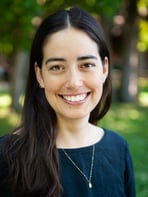 “Indigenous rights have always been really personal and important to me, and I really believe that if you come from a place of privilege, you have a responsibility to uplift. Through working with Engineers Without Borders I realized I wanted do something meaningful with my life. I have a very deep connection with being on the land and I wanted to do something that was focused on the environment.
“Indigenous rights have always been really personal and important to me, and I really believe that if you come from a place of privilege, you have a responsibility to uplift. Through working with Engineers Without Borders I realized I wanted do something meaningful with my life. I have a very deep connection with being on the land and I wanted to do something that was focused on the environment.
“I was really lucky to get bursaries through Indspire, and did my masters in environmental fluid mechanics, which is basically like contaminant hydrology. All of the processes - the hydrologic processes and the chemical ones and the water physics and chemistry, all mixed together and interacting in real time through rivers into groundwater. It's just so interesting,” says Robin.
To learn more, check out Robin’s biography here.
Hannahs’ Journey:
Hannah decided to pursue a degree in engineering after returning from a summer living and working in the remote bush of the North. “When living in the bush, we worked in harmony with nature. When I came back to the city, all I could see around me was that which is not natural. It became increasingly obvious to me that the world we live in is designed, and that means it can be changed.” She believed that learning about how the world around her was made would give her the keys to understanding systemic problems. “I thought that a degree in environmental engineering would help me understand the root cause of environmental issues and give me the tools to think of more environmentally and socially just solutions for the future.” She acknowledges that “science and technology alone cannot solve much of the problems we face today and there is a need to prioritize interdisciplinary work and the collaboration of knowledge systems.”
 Specializing in water resources didn’t occur to her until after finishing her undergrad. “When I questioned what masters to pursue, I asked myself where I was happiest, and realized that it was being near water. The opportunity to do field work as part of my research sounded perfect.”
Specializing in water resources didn’t occur to her until after finishing her undergrad. “When I questioned what masters to pursue, I asked myself where I was happiest, and realized that it was being near water. The opportunity to do field work as part of my research sounded perfect.”
A few years into her career her connection to the water makes more and more sense each day. “The Great Lakes are my home. I grew up fishing in Long Point Bay of Lake Erie and exploring the shores of Lake Huron. I always lived by major rivers, like the Thames and the Grand. The water has always been the place I go to clear my head.” Her father’s Haudenosaunee heritage from Six Nations in Ontario and mother’s hometown of Long Point, further deepens her reverence for the Great Lakes and connection to water.
To learn more about Hannah’s journey, find her biography here.
Tamarra’s Journey:
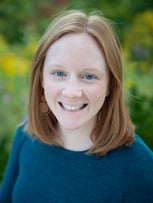 Tamarra was raised in a family who were always connected with water. “I grew up near the water continuously throughout my life. It gives me peace and it's my happy place,” says Tamarra. Her path to water resources engineering also winds through her passion for people and the natural world. “Water is such a critical connection between humans and the environment. We can’t live without it, and we need to remember how critical it is to take care of our watersheds so they can take care of us.”
Tamarra was raised in a family who were always connected with water. “I grew up near the water continuously throughout my life. It gives me peace and it's my happy place,” says Tamarra. Her path to water resources engineering also winds through her passion for people and the natural world. “Water is such a critical connection between humans and the environment. We can’t live without it, and we need to remember how critical it is to take care of our watersheds so they can take care of us.”
Tamarra’s recent pursuits include a Master’s of Conservation Leadership at the University of Guelph. “There is a learning-on-the-land component to this program, which provides further connection to the land and how that connection is vital to conservation efforts in Canada,” says Tamarra, who is completing the program this spring.
To learn more, find Tamarra’s biography here.
 Join Us for Tea!
Join Us for Tea!
Now that you have a feel for this unique and wonderful team, do get in touch — they would love to get to know you!

